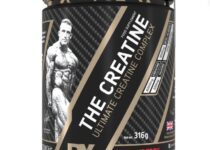Nutrition Response Testing: 10 Key Principles and Concepts, The Process And Understanding Nutritional Deficiencies.
Unveil your body’s potential with Nutrition Response Testing! Discover a personalized approach to health and wellness. Our non-invasive testing method identifies nutritional imbalances, allowing tailored solutions to optimize your well-being. Say goodbye to guesswork and embark on a journey to vitality. Experience the power of precision nutrition with Nutrition Response Testing. Your path to a healthier, happier you starts now!

Introduction to Nutrition Response Testing
Welcome to the transformative realm of Nutrition Response Testing, a holistic approach that delves deep into the intricate connection between your body and nutrition. At its core, Nutrition Response Testing is a comprehensive system designed to assess and address the root causes of health challenges.
Imagine a process that goes beyond traditional diagnostics, offering a nuanced understanding of your body’s nutritional needs. This method involves a skilled practitioner using applied kinesiology and other non-invasive techniques to discern imbalances within your body’s systems. Through this personalized analysis, we uncover deficiencies, sensitivities, and stressors that may be hindering your optimal well-being.
Unlike one-size-fits-all approaches, Nutrition Response Testing tailors recommendations specifically to you. This means targeted nutritional protocols, whole-food supplements, and lifestyle adjustments to restore balance and promote healing. It’s a journey towards reclaiming your vitality and achieving lasting health.
Join us on this exploration of the body’s intricate language, decoding signals that guide us towards a more vibrant and energized life. Nutrition Response Testing isn’t just a method; it’s a roadmap to a healthier, happier you. Embrace the power of precision nutrition and embark on a journey toward total well-being. Your body has a story to tell—let Nutrition Response Testing help you listen and respond.
See Also: Elevate Nutrition:10 Key Nutritional Principles, Product Spotlight, Supplements and Reviews
Key Principles and Concepts
- Individualized Assessment: Nutrition Response Testing recognizes the uniqueness of each individual. It involves a personalized evaluation of your body’s specific needs and responses.
- Innate Intelligence: The method respects the body’s innate intelligence to communicate its needs. By tapping into this wisdom, practitioners can identify areas of imbalance or stress.
- Applied Kinesiology: A fundamental principle involves using applied kinesiology to access the body’s feedback. This non-invasive technique involves muscle testing to gather information about potential nutritional deficiencies or imbalances.
- Holistic Approach: Rather than focusing solely on symptoms, Nutrition Response Testing looks at the whole person. It considers factors like nutrition, lifestyle, and stressors to provide a comprehensive understanding of health.
- Targeted Nutritional Support: The approach emphasizes the use of whole-food supplements and dietary recommendations tailored to address specific deficiencies or weaknesses identified during the assessment.
- Root Cause Analysis: Instead of merely treating symptoms, it seeks to identify and address the root causes of health issues. This proactive approach aims for long-term wellness.
- Education and Empowerment: Clients are actively involved in their health journey. It emphasizes education, empowering individuals to make informed decisions about their nutrition and lifestyle choices.
- Progress Monitoring: Regular assessments and reevaluations are integral to the process. This ensures that the chosen nutritional protocols are effective and allows for adjustments as the body responds and heals.
- Complementary to Conventional Care: It can complement traditional healthcare practices, offering an integrative approach that considers both conventional and alternative methods.
- Preventive Focus: Beyond addressing existing health issues, Nutrition Response Testing encourages preventive measures. By identifying and addressing imbalances early on, it aims to support overall wellness and prevent future health challenges.
The Process of Nutrition Response Testing
- Initial Consultation: Your journey begins with a detailed consultation where the practitioner gathers information about your health history, symptoms, and concerns. This forms the foundation for a personalized approach.
- Book Here: https://nutritionresponsetesting.com
- Applied Kinesiology Testing: Using applied kinesiology, the practitioner engages in muscle testing to gain insights into your body’s responses. This involves gentle pressure on specific muscles to assess their strength or weakness, providing valuable information about your body’s condition.
- Identification of Stressors: Through muscle testing, the practitioner identifies stressors such as nutritional deficiencies, sensitivities, or imbalances within your body’s systems. These stressors are crucial in understanding the root causes of health challenges.
- Customized Protocols: Based on the assessment, a tailored nutritional protocol is developed. This may include recommendations for whole-food supplements, dietary changes, and lifestyle adjustments designed to address the identified stressors and support overall health.
- Introduction of Whole-Food Supplements: Whole-food supplements, chosen for their nutritional density and compatibility with the body, are often recommended. These supplements aim to provide the specific nutrients your body needs for optimal function and healing.
- Monitoring and Adjustments: The process is dynamic, with regular follow-ups to monitor progress. Adjustments to the protocol may be made based on how your body responds over time, ensuring a personalized and effective approach to your unique health needs.
- Patient Education: Throughout the process, practitioners educate patients about the principles of Nutrition Testing, empowering them to actively participate in their health journey. This knowledge enhances long-term well-being and self-care.
- Holistic Lifestyle Recommendations: Beyond nutrition, the practitioner may offer guidance on lifestyle factors such as stress management, exercise, and sleep, recognizing the interconnectedness of these elements with overall health.
- Integration with Conventional Care: It can be integrated into conventional healthcare, fostering a collaborative approach to wellness. It complements other treatments and can be adapted to individual healthcare plans.
- Continued Support: The journey doesn’t end with the initial sessions. It involves ongoing support and monitoring to ensure sustained progress and to address any emerging health considerations.
Understanding Nutritional Deficiencies
- Identification through Assessment: Nutritional deficiencies are pinpointed through thorough assessments, including applied kinesiology and other diagnostic tools, revealing areas where the body lacks essential nutrients.
- Common Deficiencies: Examination often focuses on prevalent deficiencies like vitamins, minerals, amino acids, and fatty acids. Understanding these gaps is crucial for tailoring effective nutritional interventions.
- Impact on Body Functions: The assessment considers how specific deficiencies affect bodily functions. For example, a lack of certain vitamins or minerals can disrupt metabolic processes, compromise immune function, or hinder energy production.
- Symptom Correlation: Nutritional deficiencies are linked to a range of symptoms. The practitioner examines symptoms such as fatigue, digestive issues, cognitive difficulties, and more to deduce potential nutrient imbalances.
- Individualized Solutions: Once deficiencies are identified, personalized solutions are crafted. This may involve recommending whole-food supplements, dietary adjustments, or lifestyle changes to address the specific nutritional needs of the individual.
- Balancing Micronutrients: The focus extends beyond isolated nutrients to achieving a balance of micronutrients essential for overall health. This holistic approach aims to restore equilibrium in the body.
- Digestive Health Considerations: Assessments often delve into digestive health as nutrient absorption plays a pivotal role. Identifying and addressing issues in the digestive system is crucial for resolving nutritional deficiencies.
- Long-Term Wellness: The goal isn’t just to correct immediate deficiencies but to support long-term wellness. This involves creating sustainable nutritional plans that nourish the body consistently.
- Monitoring Progress: Regular follow-ups and reevaluations track progress in addressing nutritional deficiencies. Adjustments to the nutritional protocol are made as needed, ensuring an evolving and responsive approach.
- Educating the Individual: Understanding nutritional deficiencies empowers individuals to make informed choices. Nutrition Response Testing involves educating clients about the importance of balanced nutrition and how it contributes to overall health and well-being.

Case Studies and Success Stories
- Reversal of Chronic Fatigue: A client struggling with chronic fatigue underwent Nutrition Response Testing. Identified deficiencies were addressed through targeted supplementation and dietary changes. Over time, the client reported a significant increase in energy levels and improved overall well-being.
- Digestive Health Transformation: A case study focused on digestive issues showcased the power of Nutrition Response Testing. By pinpointing specific nutritional imbalances and incorporating tailored interventions, the client experienced relief from digestive discomfort and improved gut health.
- Weight Management Success: Nutrition Response Testing contributed to a successful weight management journey for a client. By addressing underlying nutritional deficiencies and adopting a personalized nutrition plan, the client achieved sustainable weight loss and enhanced vitality.
- Enhanced Immune Function: A case highlighted the impact of Nutrition Response Testing on immune function. Through targeted nutritional support, the client observed a strengthened immune system, reduced susceptibility to illnesses, and an overall boost in resilience.
- Hormonal Balance Restoration: Nutrition Response Testing played a key role in restoring hormonal balance for a client experiencing disruptions. Customized protocols addressing nutritional deficiencies contributed to improved hormonal health, alleviating symptoms and enhancing quality of life.
- Mental Clarity and Cognitive Improvement: A case study focused on cognitive health demonstrated the efficacy of Nutrition Response Testing. By identifying and correcting nutrient imbalances, the client reported enhanced mental clarity, improved focus, and cognitive well-being.
- Joint Pain Relief: Nutrition Response Testing contributed to relieving joint pain in a client. Through targeted nutritional interventions, including anti-inflammatory whole-food supplements, the client experienced a reduction in pain and increased joint mobility.
- Balancing Blood Sugar Levels: A success story highlighted the role of Nutrition Response Testing in managing blood sugar levels. Personalized nutritional strategies resulted in improved insulin sensitivity and better glycemic control for the client.
- Stress Resilience and Emotional Well-Being: Nutrition Response Testing positively impacted stress resilience and emotional well-being. By addressing nutritional deficiencies that influenced neurotransmitter balance, the client reported enhanced mood stability and reduced stress levels.
- Optimized Athletic Performance: Nutrition Response Testing contributed to optimizing athletic performance for a client. Tailored nutritional protocols supported energy production, recovery, and overall physical endurance, showcasing the versatility of this approach in different contexts.
Integrating Nutrition Response Testing into Healthcare
- Collaborative Care Approach: Emphasize the integration of Nutrition Response Testing into conventional healthcare, fostering collaboration between practitioners for a comprehensive and holistic patient care strategy.
- Diagnostic Support: Position Nutrition Response Testing as a valuable diagnostic tool that can complement traditional medical assessments, providing additional insights into nutritional imbalances and contributing factors.
- Preventive Medicine Emphasis: Highlight the preventive aspects of Nutrition Response Testing, demonstrating its role in identifying and addressing nutritional deficiencies early on to prevent the development of chronic health conditions.
- Patient-Centered Care: Stress the patient-centered nature of Nutrition Response Testing, where individuals actively participate in their healthcare decisions. This aligns with the growing emphasis on patient empowerment and engagement.
- Personalized Treatment Plans: Showcase how Nutrition Response Testing enables the creation of highly personalized treatment plans, tailoring interventions based on individual nutritional needs and responses.
- Addressing Root Causes: Emphasize the approach of Nutrition Response Testing in addressing the root causes of health issues, complementing traditional medicine’s focus on symptom management.
- Chronic Disease Management: Position Nutrition Response Testing as a valuable tool for managing chronic diseases by incorporating nutritional interventions into the overall treatment plan for improved patient outcomes.
- Enhanced Wellness Programs: Integrate Nutrition Response Testing into wellness programs within healthcare settings, providing patients with comprehensive tools for maintaining and enhancing their overall well-being.
- Educational Initiatives: Implement educational initiatives for healthcare professionals to increase awareness of Nutrition Response Testing, fostering a better understanding of its principles and applications.
- Outcome Monitoring and Research: Encourage research initiatives to evaluate the effectiveness of Nutrition Response Testing in specific health conditions, providing evidence-based support for its integration into mainstream healthcare practices.
Practical Applications and Implementation Tips
- Training and Certification: Ensure practitioners are adequately trained and certified in Nutrition Response Testing to guarantee proficiency in its application.
- Integration with Electronic Health Records (EHR): Facilitate seamless integration with electronic health record systems to enhance communication and information sharing between practitioners in different healthcare settings.
- Multidisciplinary Teams: Encourage collaboration among practitioners from diverse healthcare fields, fostering a multidisciplinary approach to patient care that includes Nutrition Response Testing.
- Patient Education Programs: Develop educational programs to inform patients about Nutrition Response Testing, its principles, and potential benefits. Informed patients are more likely to actively participate in their healthcare.
- Regular Training Updates: Implement regular training updates for healthcare professionals using Nutrition Response Testing to keep them abreast of new developments and refinements in the methodology.
- Quality Assurance Protocols: Establish quality assurance protocols to maintain the standardization and reliability of Nutrition Response Testing procedures across healthcare settings.
- Outcome Monitoring and Feedback: Implement systems for monitoring patient outcomes and collecting feedback. This information can be valuable for refining protocols and improving the overall effectiveness of Nutrition Response Testing.
- Collaboration with Nutritional Experts: Foster collaboration with nutritionists and dietitians to enhance the nutritional counseling aspect of Nutrition Response Testing, ensuring a comprehensive approach to patient care.
- Incorporation into Wellness Programs: Integrate Nutrition Response Testing into existing wellness programs, offering patients a more comprehensive approach to health that includes personalized nutrition.
- Patient-Centric Technology: Explore and invest in technologies that empower patients, such as apps or online platforms that provide personalized nutritional guidance based on Nutrition Response Testing results. This promotes continuous engagement and adherence to treatment plans.
Future Trends in Nutrition Response Testing
- Advancements in Technology: Anticipate the integration of advanced technologies, such as AI algorithms and sophisticated diagnostic tools, to enhance the precision and efficiency of Nutrition Response Testing.
- Personalized Genomic Nutrition: Explore the intersection of genomics and Nutrition Response Testing, allowing for even more personalized nutritional recommendations based on an individual’s genetic makeup.
- Telehealth Implementation: Embrace the growing trend of telehealth by developing remote capabilities for Nutrition Response Testing, making this approach more accessible to a broader range of individuals.
- Big Data and Analytics: Leverage big data analytics to analyze large datasets generated through Nutrition Response Testing, enabling researchers to identify patterns, trends, and correlations for more effective interventions.
- Integration with Wearable Devices: Explore the integration of Nutrition Response Testing with wearable devices, allowing real-time monitoring of physiological parameters and enhancing the dynamic nature of personalized nutrition plans.
- Research and Evidence-Based Practices: Expect an increase in research endeavors to establish a stronger evidence base for the efficacy of Nutrition Response Testing across various health conditions, solidifying its standing in integrative healthcare.
- Nutrigenomics Integration: Integrate insights from nutrigenomics, which explores the relationship between nutrition, genetics, and health, to enhance the precision of nutritional recommendations within Nutrition Response Testing protocols.
- Global Adoption and Standardization: Witness a global adoption of Nutrition Response Testing, accompanied by efforts to standardize protocols and ensure consistent training and certification practices worldwide.
- Collaboration with Mainstream Medicine: See increased collaboration and acceptance of Nutrition Response Testing within mainstream medicine, as healthcare systems recognize the value of integrative approaches to patient care.
- Expanded Scope of Applications: Discover new applications for Nutrition Response Testing beyond traditional health concerns, including mental health, neurodegenerative conditions, and optimization of performance in athletes.

Conclusion: The Role of Nutrition Response Testing in Health and Wellness
In conclusion, Nutrition Response Testing emerges as a dynamic and promising paradigm in the realm of health and wellness. Its holistic approach, rooted in personalized assessment and targeted nutritional interventions, addresses the individual’s unique needs, surpassing the limitations of one-size-fits-all methodologies.
By identifying and rectifying nutritional deficiencies at their root, Nutrition Response Testing plays a pivotal role in preventive care, promoting long-term well-being. The methodology’s emphasis on collaboration with conventional healthcare systems positions it as a complementary and integrative force, enriching the spectrum of available treatments.
The success stories and case studies underscore the transformative impact Nutrition Response Testing can have on various health conditions, ranging from chronic diseases to mental well-being. As we look to the future, the integration of advanced technologies, genomics, and global standardization paves the way for an even more refined and accessible application of this approach.
Ultimately, Nutrition Response Testing stands as a beacon in the pursuit of optimal health, empowering individuals to actively engage in their wellness journey. Its role extends beyond symptom management, reaching into the realms of prevention, education, and the restoration of the body’s innate balance. In an era where personalized and preventive healthcare is gaining prominence, Nutrition Response Testing emerges as a beacon of precision, offering a roadmap to a healthier and more vibrant life.
Common Misconceptions and FAQs
- Misconception 1: Nutrition Response Testing is a Pseudoscience
- Clarification: Nutrition Response Testing is based on principles of applied kinesiology and holistic health. While it may differ from traditional diagnostic methods, it is not a pseudoscience. Its efficacy is often supported by individual success stories and ongoing research.
- Misconception 2: It’s Only about Supplements
- Clarification: While whole-food supplements are commonly recommended, Nutrition Response Testing is a comprehensive approach. It involves identifying and addressing nutritional deficiencies through dietary changes, lifestyle adjustments, and other holistic interventions.
- Misconception 3: One Session Solves Everything
- Clarification: Achieving optimal health is a process. Nutrition Response Testing typically involves multiple sessions and ongoing assessments to monitor progress, make adjustments, and ensure sustained improvements.
- Misconception 4: It’s Only for Treating Illness
- Clarification: Nutrition Response Testing also emphasizes preventive care. By identifying imbalances before they manifest as illness, it aims to support overall well-being and prevent health issues from arising.
- Misconception 5: Lack of Scientific Evidence
- Clarification: While scientific research on Nutrition Response Testing is ongoing, individual success stories and practitioner testimonials exist. The field is evolving, and more research is needed to establish its efficacy in a broader context.
Frequently Asked Questions (FAQs)
Is Nutrition Response Testing Painful?
No, Nutrition Response Testing is non-invasive and typically painless. It involves methods such as applied kinesiology, which uses gentle muscle testing.
How Long Does It Take to See Results?
Results vary based on individual health conditions. Some individuals may experience improvements relatively quickly, while others may require more time. Consistency with recommended protocols is key.
Can Nutrition Response Testing Replace Traditional Medicine?
Nutrition Response Testing is often used as a complementary approach to traditional medicine. It’s essential to consult with healthcare providers and integrate it into a comprehensive healthcare plan.
Is Nutrition Response Testing Suitable for Everyone?
Nutrition Response Testing can be tailored to various health needs. However, individual responses may vary. Pregnant women, for example, may need specific considerations.
Is it Expensive?
Costs can vary based on the practitioner and the recommended interventions. Some find it cost-effective compared to long-term medical expenses associated with untreated health issues. It’s advisable to discuss fees during the initial consultation.


